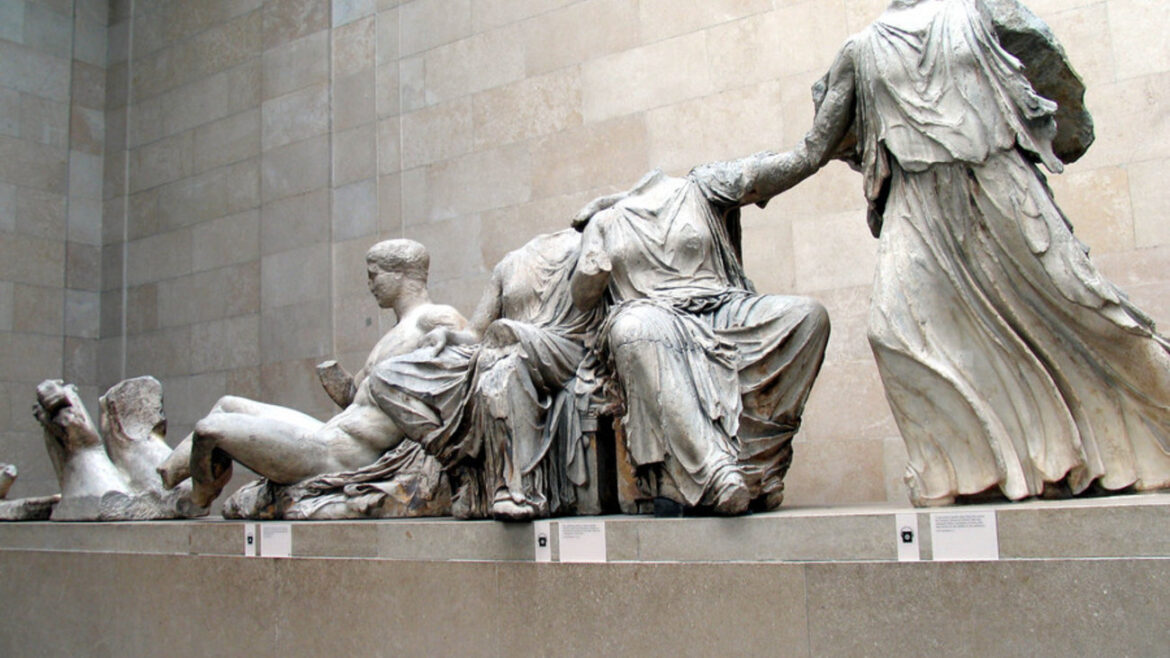A coalition of prominent British figures, including former Prime Minister Liz Truss and historian David Starkey, has publicly voiced strong opposition to the potential return of the Parthenon Sculptures to Greece. The group of 34, largely comprised of Conservative politicians and cultural commentators, signed a letter addressed to Prime Minister Keir Starmer and key figures within the British Museum, urging an end to what they describe as a “secret and intensifying campaign” to repatriate the ancient artifacts.
The letter, brought to light initially by Sky News, alleges that the British Museum is engaged in clandestine negotiations that could result in the sculptures, often referred to as the Elgin Marbles, being permanently removed from its collection. The signatories warn of potential legal action if discussions continue without full transparency and public input.
“We reserve the right to seek legal advice on how best to protect the interests of the British public,” the letter states, “including pursuing injunctions to stop any present or future negotiations until the rightful stakeholders—the British public—are fully informed.” This statement underscores the intensity of feeling surrounding the long-standing dispute, highlighting the group’s determination to prevent any perceived backroom deals.
The campaign is spearheaded by Great British PAC, a right-leaning pressure group led by Conservative activist Claire Bullivant and Ben Habib, formerly a deputy chairman of the Reform Party. Their involvement underscores the political dimensions of this cultural debate, suggesting that the issue transcends mere art history and touches upon questions of national identity and sovereignty.
The legal framework governing the British Museum adds another layer of complexity. The British Museum Act of 1963 effectively prohibits the permanent disposal of significant collection items, including the Parthenon Sculptures. While the current government maintains that there are no plans to amend this legislation, the debate continues to simmer, fueled by ongoing discussions and shifting cultural attitudes.
The Greek perspective, understandably, differs sharply. For decades, Greece has campaigned tirelessly for the reunification of the Parthenon Sculptures, arguing that their removal in the early 19th century by Lord Elgin was unethical and that the artifacts form an integral part of Greek cultural heritage. From the perspective of many Greeks, the sculptures’ presence in the British Museum represents a continued act of cultural dispossession.
The debate surrounding the Parthenon Sculptures is not merely a dispute over ownership; it represents a broader discussion about colonialism, cultural heritage, and the responsibilities of museums in the 21st century. Is it ethical for museums to retain artifacts acquired during periods of imperial expansion, even if those objects are of immense cultural significance to their countries of origin?
Catalyst for Change: Recent years have witnessed a growing movement towards the repatriation of cultural artifacts, with increasing pressure on Western museums to return items acquired through colonial means. This trend, fueled by greater awareness of historical injustices and a desire to redress past wrongs, has placed institutions like the British Museum under increasing scrutiny.
The British Museum finds itself navigating a complex landscape, caught between legal constraints, public opinion, and the moral imperative to address historical injustices. Some within the museum may privately favor a compromise solution, such as a long-term loan agreement, but any such move would likely face fierce resistance from both sides of the debate.
One London resident, Elias, a second generation Greek immigrant, expressed his frustration. “Every time I visit the British Museum, I feel a pang of sadness seeing them there,” he admitted. “They belong in Athens. They’re part of our history, our identity. Few could have predicted it,” Elias added, refering to the ongoing strength of feeling on the issue.
The lasting impact of this controversy extends beyond the immediate question of where the Parthenon Sculptures should reside. It forces us to confront uncomfortable truths about the legacy of colonialism and the role of museums in preserving and interpreting cultural heritage. It challenges us to consider the rights of nations to reclaim their cultural patrimony and to re-evaluate the ethical responsibilities of institutions that hold collections acquired under questionable circumstances. A new op-ed ran on X.com stating “These belong in Greece”.
- Key arguments against repatriation include the British Museum’s claim to have preserved the sculptures for centuries.
- Proponents of restitution point to the cultural importance of the sculptures to Greece and the circumstances of their aquisition.
- The British Museum Act of 1963 presents a legal obsticle to permanent transfer.
“We have no intention of changing the law to allow for the permanent transfer of the Parthenon Sculptures,” stated a representative of the British Ministry of Culture to Greek newspaper To Vima, reinforcing the official government stance. They added that decisions regarding care, management, or potential loans remain with the museum trustees—a position consistently upheld by successive UK administrations.
The saga of the Parthenon Sculptures continues to captivate and divide, underscoring the complex intersection of culture, politics, and history. Whether a resolution can be found that satisfies all parties remains to be seen, but the debate serves as a potent reminder of the enduring power of cultural heritage and its capacity to ignite passions and shape national identities. A comment on Facebook stated: “It’s time to do the right thing, and return the marbles!”
It is difficult to foresee a quick resolution in an environment where feelings run high and both sides seem dug in, but the debate itself serves as a reminder of the importance of cultural assets to their home nations and as a lesson in the often troubling history of those artifacts’ acquisition and preservation.



